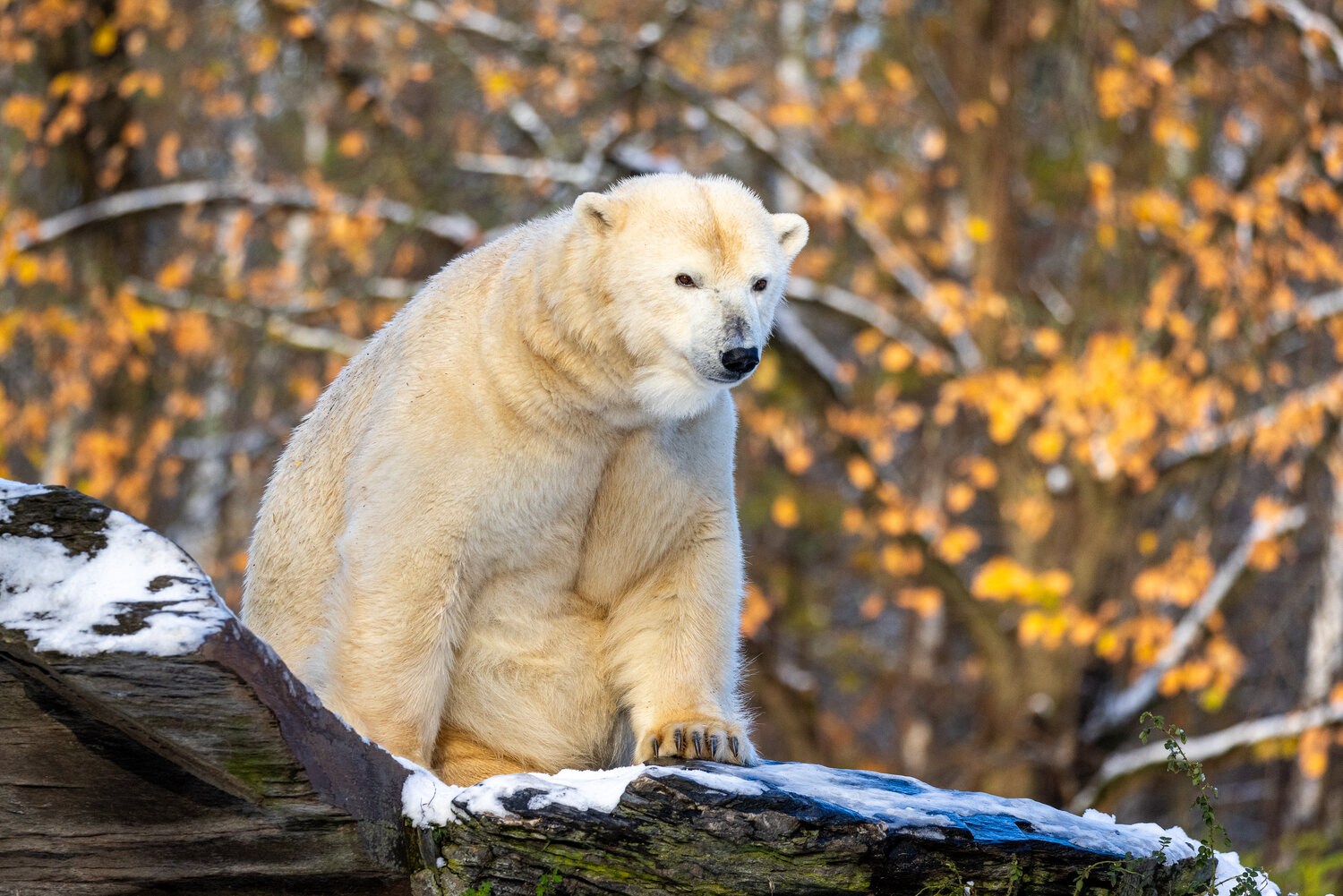Is Tierpark Berlin’s young polar bear Hertha really in danger of falling prey to a hunter? No – but the species as a whole faces a threat that is only too real.
In recent days, a rumour has been circulating on social media about a hunter having expressed his intention to target Hertha the polar bear. With his face obscured, the alleged hunter brandished a commercial hunting licence for polar bears – which actually can be purchased in Canada. Tierpark Berlin and journalist Michel Abdollahi have now shed light on the stunt with the launch of a crowdfunding campaign for species and climate conservation. The basis of the campaign is Abdollahi’s self-produced five-part documentary Time to Say Goodbye, which is devoted entirely to the planet’s largest land predator and poses the question: What are we humans doing to our environment?
Today, Earth is home to only around 25,000 polar bears. The greatest threat to the species is rising global temperatures and the associated loss of habitat. Polar bears rely on the Arctic sea ice to successfully hunt for food. But as climate change continues, the periods of time without sufficient ice are getting longer and longer. This is having a negative impact on the bears’ health and their ability to reproduce, thus threatening their long-term survival.
Climate and species conservation takes teamwork: interdisciplinary cooperation is vital when tackling these sorts of global challenges. Zoo and Tierpark Berlin are committed to polar bear conservation and form part of the worldwide Arctic Ambassador Center network created by NGO Polar Bears International. “We work with other researchers to help facilitate important basic research,” says biologist and zoological curator Dr Florian Sicks. “Recommendations for meaningful conservation measures – such as identifying suitable protected areas – are entirely dependent on sound scientific knowledge, and many important findings – for example on how polar bears rear their young – have only been obtained thanks to cooperation with scientifically managed zoos.” And that’s not all: Sicks explains that those zoos also see it as their duty to provide environmental education. “Not everyone can, wants to, or should travel to the Arctic to come face to face with the world’s largest land predators in the wild, but if even half of our five million visitors use their animal encounters here in Berlin as an opportunity to reflect on how we can make changes in our everyday lives to improve the natural habitat of the polar bears, then we will have made a difference.”
In his documentary, Michel Abdollahi sets out with the intention of making a film about bizarre places. He ends up at the North Pole, starts pursuing polar bears, and ultimately turns from a journalist into an activist. “Encountering a polar bear is an indescribable experience,” says Abdollahi, though he acknowledges that the privilege of seeing the bears in their natural habitat is one that very few people get to enjoy. “The idea that one day this creature may simply no longer exist is absurd and horrifying,” he continues. “If we want to prevent that from happening, we must join forces with people from all areas of society as well as institutions like Tierpark Berlin to drive the message home time and again – with both individual and group efforts.” To ensure that the documentary reaches as many people as possible, it can be viewed free of charge from today at www.youtube.com/@truth.unscripted.
Following his words with action, Abdollahi has launched a crowdfunding campaign for a number of initiatives, including climate and species conservation projects. All information can be found at www.truth-unscripted.com.
Time to Say Goodbye is part of Filmreihe #2030
The documentary will premiere on 4 March, 6 p.m., at the delphi LUX cinema as part of the Filmreihe #2030 series of film screenings organised by the Department of Education for Sustainable Development (SNBE) of Berlin’s Charlottenburg-Wilmersdorf district. The screening will be followed by a panel discussion with Michel Abdollahi and polar bear expert and curator at Zoo Berlin, Dr Florian Sicks. Tickets are available at delphi LUX | Yorck Kinos Berlin.
With its Filmreihe #2030 event series, the SNBE is partnering with delphi LUX and the Berlin State Agency for Civic Education to present a wide selection of films related to the United Nations’ 17 Sustainable Development Goals. After each screening, initiatives, filmmakers and committed individuals discuss the topics covered and, with the audience, address the question: How can we actively help make the world a fairer and more sustainable place for all?
Morning screenings for school classes can be booked for all films on a preferred date throughout the month by calling +49 (0)30 9029 12016 or emailing sbne@charlottenburg-wilmersdorf.de. There is also an online version of the film specifically for schoolchildren. The event series is supported by Engagement Global gGmbH as part of its Service Agency – Communities in One World (SKEW) programme, with funds from the Federal Ministry for Economic Cooperation and Development (BMZ).
Photos: © Tierpark Berlin / © Timothy Floyd // Polarbearsinternational.org

![[Translate to English:] © Timothy Floyd // Polarbearsinternational.org](/fileadmin/_processed_/5/f/csm_Artenschutz_-_Eisbaer_-_Polar_Bears_International.org_3520694be5.jpg)